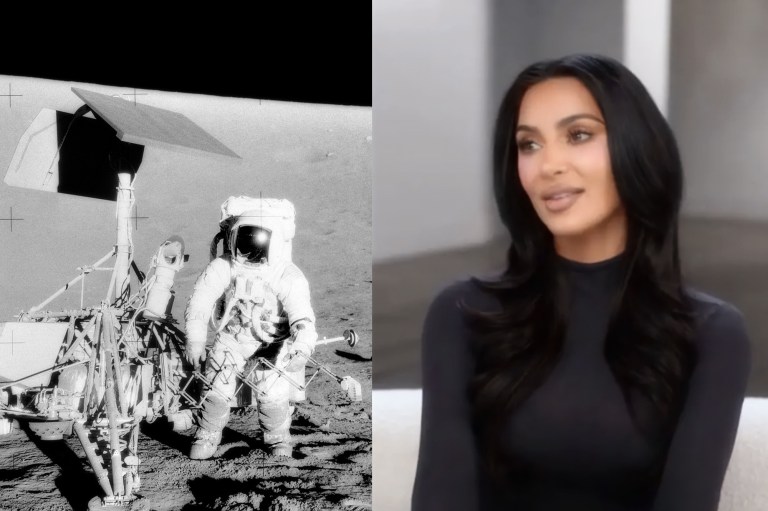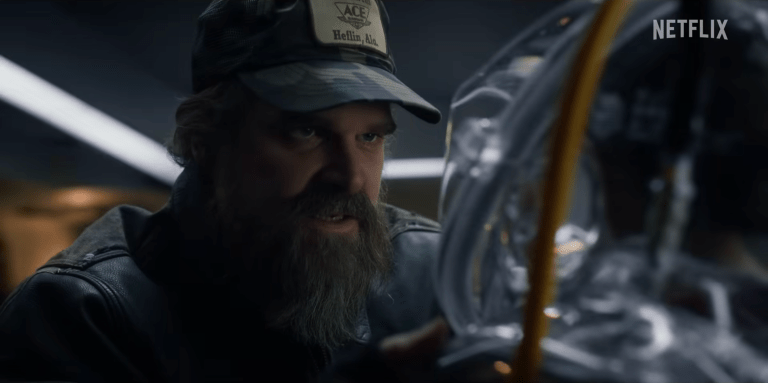
My Boyfriend And I Answered Those 36 Questions That Make Strangers Fall In Love With Each Other

Over cocktails with friends one recent night, my boyfriend was recounting a story about his crazy college days when an important call forced him to step aside unexpectedly. “Don’t worry, I can take it from here—through the plot twist and all the way home,” I said. That’s when I realized that I could probably finish any of the anecdotes in my boyfriend’s repertoire of identity defining tales. After five years of dating and three years of cohabiting, I’d catalogued it all—drink preferences, the number of Adidas Rod Laver sneakers he needs to own to feel whole, the exact amount of force required to shove him mid-sleep so he stops snoring without waking, and every idiosyncrasy in between.
There’s something wonderfully comforting about knowing someone so thoroughly that you can complete their sentences and anticipate their every need. But there’s also something terrifying about feeling as if you’ve reached the mutual knowledge saturation point as a couple. Like a vast expanse of calm seas after years of riding the rapids, the future suddenly looks peaceful, but boring as hell.
Is it even possible to grow closer once there’s nothing left to discover?
In a 1997 study published by Personality and Social Psychology Bulletin, the psychologist Dr. Arthur Aron guided pairs of strangers in tasks specifically designed to generate closeness. Part of the experiment involved answering a series of 36 questions and then staring into your designated partner’s eyes for four straight minutes. Dr. Aron’s methodology famously resulted in an official marriage. According to his findings, reciprocal self-disclosure plays a critical part in relationship building, perhaps more so than common interests, expectations, or pheromones.
The notion that we can accelerate intimacy is incredibly encouraging, but anyone who’s ever been in a serious, long-term relationship understands that there’s a difference between falling in love, and staying in love. The only thing better than a shortcut to finding Mr. or Mrs. Right would be a handbook for rekindling the affection flame between couples over time. So can we apply what we know about triggering closeness to preventing couples from reaching the closeness bottom?
Curious about the impact of Dr. Aron’s technique on long-term lovers, I enlist my boyfriend to go through the process with me.
After a candle lit dinner at home, we pop open a second bottle of red wine and sit on our couch, three-page questionnaires in hand. While my boyfriend and I aren’t immune to occasional raging fights, our bond is impressively strong. Still, I’m way more nervous than I thought I would be. What if I hate his answers? What if these flimsy sheets of paper reveal that we’re mismatched? Or, worse yet, that there’s not a shred of mystery left between us?
We agree to take turns reading the questions aloud. The first few include some tedious hypotheticals (e.g. ultimate pick for a dinner guest) that make me feel like I’m preparing for a job interview. Moving on, we arrive at a series of questions incorporating superlatives. I’ve never had an easy time picking a favorite color, movie, or ice cream flavor, so the prospect of zeroing in on my “most treasured” and “most terrible” memories and my “greatest accomplishment” is challenging. It’s not until I engage in the thought process such seemingly simple questions require that I recognize their significance. Maybe there’s value in pushing ourselves to make a choice—to commit, so to speak—to an answer, or a person.
Gradually, the questions become more and more personal. I can’t help but note that my boyfriend and I interpret several differently (for instance, he believes that knowing the future means you can change it, whereas I don’t), and that we both feel strongly about our conflicting views on some weighty issues. One telling question reads: “If you were able to live to the age of 90 and retain either the mind or body of a 30-year-old for the last 60 years of your life, which would you choose?” We answer simultaneously, equally emphatic about our opposite choices. I pick the mind, he chooses the body. Interesting. Or disturbing. I can’t decide.
Until I realize that this dialogue is entirely new for us, and that I’ve learned something about my boyfriend.
Prompted to describe childhood experiences, relationships with family and friends, future hopes and fears, we continue to visit the innermost corners of each other’s psyches. Neither of us anticipates what’s revealed through discussing embarrassment, a topic I’m guessing most avoid without realizing how refreshing it can be to divulge a secret to someone you love.
About three quarters of the way through, we’re instructed to alternate listing positive characteristics about each other. Aside from “your body, specifically tits and ass” (in all fairness, a response to the statement “I love your penis”), my boyfriend cites my loyalty to friends, sometimes brutal truthfulness, and lack of concern for what others think. I’m overwhelmed by the sense that he truly respects me.
After an hour and three minutes, we begin the staring portion of the program. This directive might sound straightforward, but staring contests aside, when else have you held eye contact with someone for an extended stretch?
We don’t move for six and a half minutes, not even to wipe the tears from our cheeks. In a way, the eyes reveal more than words ever could.
When our time is up my boyfriend announces, “I love you so much,” then kisses me and scoops me into his arms.
As we head towards the bed, I ask, “Were you thinking about sex the entire time?”
“Not at all,” he says.
The lovemaking is superlative.
Come morning, I’m still giddy. So we don’t feel similarly about the tradeoff between sound mind and body, or the ability to pre-select the physical appearance and sex of our hypothetical child (he’s for it, I’m against). He watches Fox News, and I’m an MSNBC gal anyway. Compatibility isn’t necessarily a function of similarity. Above all, I welcome the reassurance that there’s always something more to learn about another person.
Of course, it’s impossible to guess how long the amped up intimacy will last. But I’m more certain than ever that I’m with the right person. And that openness and vulnerability are powerful tools we can use to spark love, and sustain it. ![]()
A version of this story originally appeared on Cosmopolitan.com












